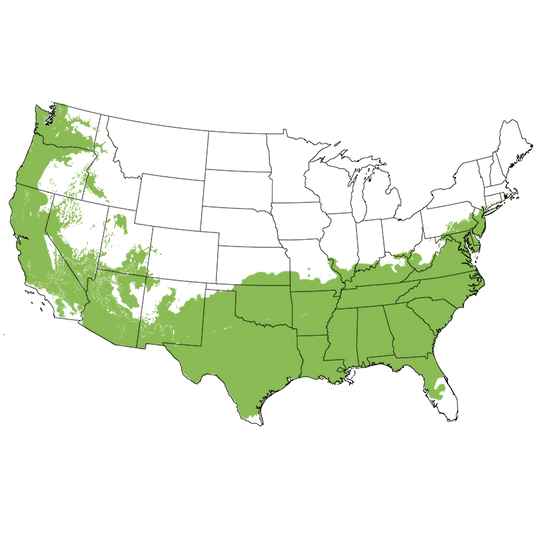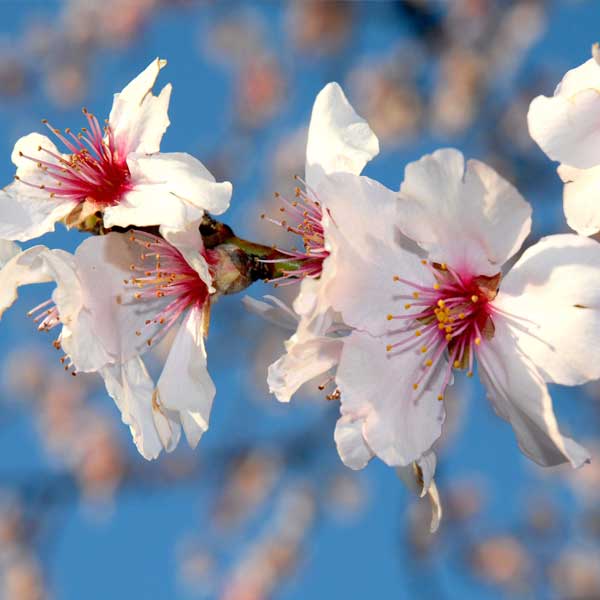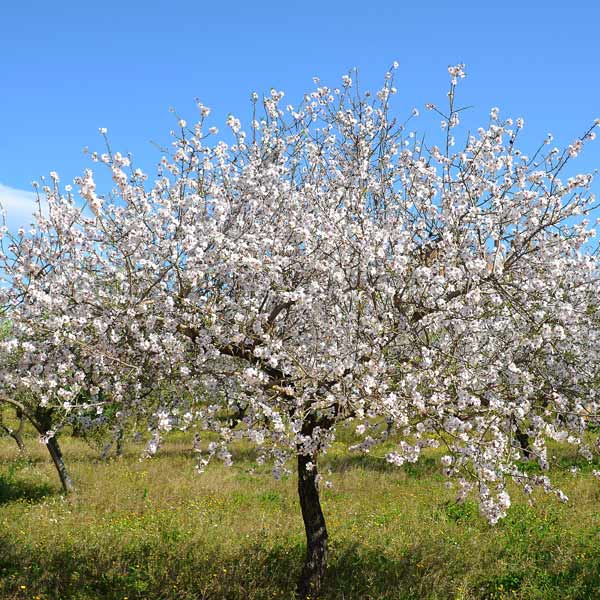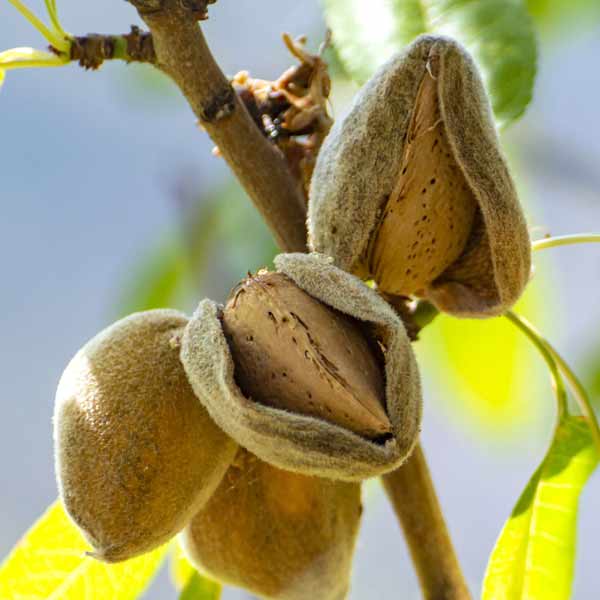Texas Mission Almond Tree
Prunus dulcis 'Texas Mission'
Delivery and Shipping
Delivery and Shipping
Preorder Shipping Schedule
We ship your plants when it's safe to transport them to your zone. Dates are estimated and subject to weather delays.
| Zone 3-4 | Week of March 30th |
| Zone 5 | Week of March 16th |
| Zone 6 | Week of March 2nd |
| Zone 7-12 | Week of February 23rd |
Shipping Rates
Ships in 3-4 business days • Tracking provided • Weather protected
| Under $50 | $9.99 |
| $50 - $99.99 | $14.99 |
| $100 - $149.99 | $16.99 |
| $150 - $198.99 | $24.99 |
| $199+ | FREE |
✓ Zone-specific timing • ✓ Professional packaging • ✓ Health guarantee

Plant Sentry™ Protected
Your order is protected by our compliance system that:
- Prevents restricted plants from shipping to your state
- Ensures plants meet your state's agricultural requirements
- Protects gardens from invasive pests and diseases
Sweet Nut Texas Mission Almond Tree
- 500 Chill Hours
- Gorgeous White Blooms with Pink Centers
- Late Spring Bloom Time Protects Against Late Frosts
- Attractive, Spreading Form
- Grow Your Own Healthy Superfood
- Perfect for Hot, Dry Summers
- Disease Resistant
One of the most popular commercial Almond trees, the Texas Mission Almond Tree (Prunus dulcis 'Texas Mission') is easily grown at home. Also known as simply the Texas Almond, this beloved favorite produces very sweet nuts that are quite meaty.
This lovely tree makes an attractive addition to the landscape, with pretty white blooms with pink centers in late spring. Bloom times that come a bit later help protect your precious crop from late freezes!
Texas Mission Almond is known for being partially self-fertile. Technically, you'll get nuts from a single tree. But you'll enjoy a much larger bumper crop if you can add a second variety nearby.
With pollination support, this tree becomes a reliable heavy producer of hard, well-sealed Almonds. These vigorous trees are easy to care for and maintain with moderate water usage.
Order Texas Mission Almond Tree for your Edible Landscape today!
How to Use Texas Mission Almond Tree in the Landscape
Yes, it makes sense to add a reliable source of nutrient-dense nuts to your landscape. Almonds are a powerhouse snack option with numerous health benefits.
But with Texas Mission, you'll also gain a gorgeous ornamental tree. Lower your cholesterol, and enjoy eye candy, as well.
Growing your own is certainly a great way to increase food security and make the most of your sunshine! Almonds have similar growing requirements to other stone fruits, such as Nectarines and Apricots.
Add Texas Mission as a specimen tree. The spring blooms and open, spreading form add an evocative look to your landscape. Why not flank either side of the entrance to an outdoor dining room with a pair?
Use several varieties and plant a mini grove to maximize your nut production. If you have the room, allow the trees to grow to their full spread and height.
Have a tiny lot? Try summer pruning for size control. It's easy to keep fruit trees smaller with annual pruning.
8 feet and under makes for a manageable harvest. Be sure to watch our YouTube videos to learn more about Backyard Orchard.
Almonds ripen from the top of the tree down. Harvest your crop once most of the hulls have begun to split by shaking the tree, or using a small stick to knock the branches.
It's best to keep litter away from the base of your tree. Why not add the spent hulls to your compost pile?
#ProPlantTips for Care
Plant in full sun for the best result. Almonds require at least 6 hours of direct sunlight for best results. A planting site that receives morning sunlight is best to dry the foliage quickly.
Almonds also require well-drained soil. If you need to improve drainage, elevate your planting by adding soil in a mound 12 to 18 inches tall by 3 feet wide. Add a decorative border to create a raised bed.
Provide a moderate amount of water on a regular basis to support your production. Apply a thick layer of mulch over the root system to cut down on surface evaporation.
Allow 6 inches of clearance around the trunk for air circulation. Spread to 3 feet outside the canopy.
Control the height and spread to keep the tree at a manageable size with summer pruning. Remove crossing branches in the interior of the tree in late winter. The goal is to increase the sunlight and air circulation in the canopy.
Texas Mission Almond Tree makes a wonderfully productive addition to your landscape. Add this protein-rich, healthy, homegrown nut tree today from NatureHills.com!
-
Botanical Name
-
Growing Zones
-
Height
-
Width
-
Sunlight
-
Growth RateModerate
-
Flower Color
-
Leaf Color
-
Fall Color
-
FragrantYes
-
Bloom PeriodEarly Spring, Late Spring
-
Does Not Ship ToAK, CA, HI, ID, MT, TX







